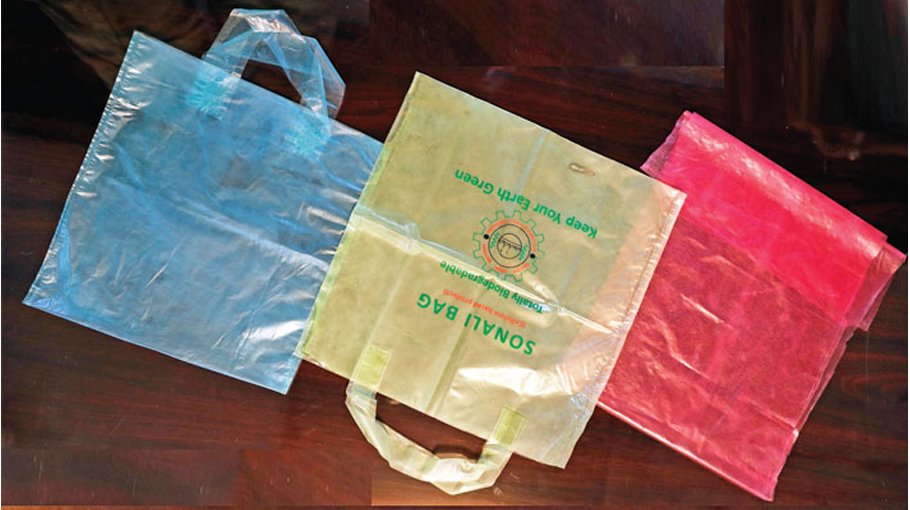‘Sonali bag’ may hit market in Jan
Ban on poly bags can be boon to cottage industries

The demand for jute bags has increased steeply after the government has recently imposed a ban on polythene bags in the country.
As a result, both customers and retailers are facing a shortage of cost-effective and eco-friendly bags in the markets and supermarkets.
However, environment-friendly jute-based bag, known as ‘sonali bag,’ is set to hit the market in January. This innovative solution, developed by scientist Dr Mobarak Ahmed, may help ease the shortage of bags.
According to the scientist, its production capacity is expected to reach five to seven tonnes per day. Even small-scale producers in rural areas will be able to manufacture these bags.
Environmental experts said that some traditional materials used by rural and indigenous communities could be viable alternatives to polythene bags. They suggest that by using these materials, small-scale cottage industries could find new growth opportunities, adding diversity to the market for eco-friendly products.
Some private companies have taken initiative to produce biodegradable bags, offering an alternative at competitive prices. These companies assert that their products will not only meet environmental standards but will also come with verified proof of their eco-friendliness.
Dr Mobarak Ahmed, Chief Scientific Officer at Bangladesh Jute Mills Corporation (BJMC), told Bangladesh Post that it is made from fine jute cellulose and looks similar to conventional polythene. The bag is lightweight, durable, and disintegrates into ash when burned, causing no harm to the environment.
The bag can be reused multiple times, making it a sustainable option. BJMC has plan to launch the eco-friendly bag commercially next year, with a projected daily production of five to seven tonnes per factory, he added.
In addition to jute, bags can be made from other natural materials. Experts point out that traditional products from rural and indigenous communities can help meet the demand for polythene substitutes. For instance, fibres from banana trees are now being used to produce waterproof fabric, which could be turned into durable bags.
Research also shows that some biodegradable bags produced in the country decompose within 180 days. These findings have been supported by scientists at Bangladesh Council of Scientific and Industrial Research (BCSIR), who confirmed that few local products are truly biodegradable after conducting tests over a six-month period.
Dr Swapan Kumar Roy, head of Fibre and Polymer Department at BCSIR, said that tests continue to confirm that certain products do not harm the environment.
The question is how these alternatives are cost-effective compared to polythene bags. Producers claim that standard polythene and polypropylene bags cost between Tk 5 and Tk 10, depending on their size.
In contrast, bags made from jute, paper, or fabric range from Tk 15 to Tk 30. Compostable or biodegradable bags, on the other hand, are priced more affordably, costing around Tk 3 to Tk 6 for bags of the same size.
Currently, around 40 percent of plastic bags are single-use only. Researchers have raised alarm, stating that 12 out of 18 chemicals found in these bags are highly toxic, posing significant risks to human health.



